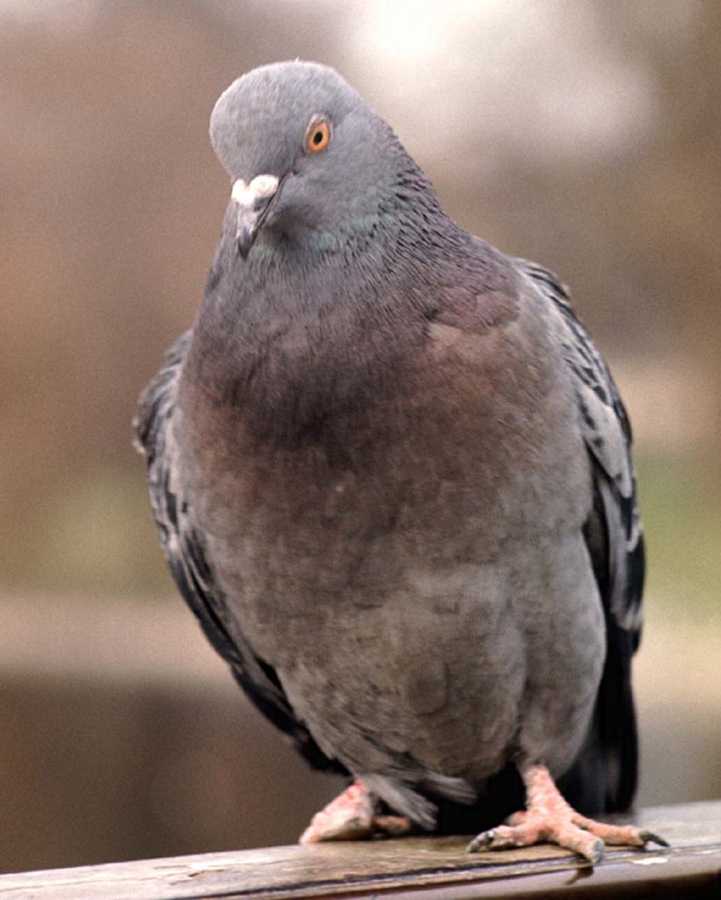
by Pigeon Patrol | Jul 20, 2023 | Bird Spike, Pigeon Droppings, Pigeon Patrol's Services, Pigeon Predators, Pigeon Spikes, Pigeons, Pigeons in the News
Chickens bob their heads while walking. So do cranes, magpies and quails. In fact, head bobbing is a unique feature in birds and occurs in at least 8 of the 27 families of birds.
There are a few theories why some birds bob their heads when they walk:
- Assists with balance
- Provides depth perception
- Sharpens their vision
However, most studies suggest that birds in motion bob their heads to stabilize their visual surroundings. In comparison, we rely more on our eye movements, not our head movements, to catch and hold images while in motion.
Picture a pigeon on a moving treadmill. What do you think would happen as the pigeon walks with the speed of the treadmill and its environment remains relatively the same? Dr. Barrie J Frost (1978) did this experiment and the pigeon’s head did not bob.
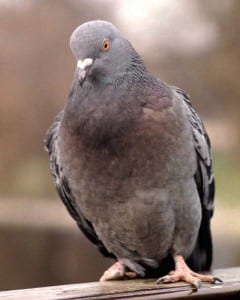
Dr. Mark Friedman (1975) also conducted a series of experiments to test the head bobbing actions of birds, using doves. His research demonstrated that the head movement is controlled more by visual stimulation than movement of the body.
Scientists continue to research head bobbing in birds. For example, scientists are currently investigating question such as “Why do some birds exhibit head bobbing, while other do not?” For more information on this topic see the related Web sites section.
Source
Pigeon Patrol Products & Services is the leading manufacturer and distributor or bird deterrent (control) products in Canada. Pigeon Patrol products have solved pest bird problems in industrial, commercial, and residential settings since 2000, by using safe and humane bird
deterrents with only bird and animal friendly solutions. At Pigeon Patrol, we manufacture and offer a variety of bird deterrents, ranging from Ultra-flex Bird Spikes with UV protection, Bird Netting, 4-S Bird Gel and the best Ultrasonic and audible sound devices on the market today.
Voted Best Canadian wholesaler for Bird Deterrent products ten years in a row.
Contact us at 1 877-4-NO-BIRD,(604) 585-9279 or visit our website at www.pigeonpatrol.ca
Pigeon/Pigeon Patrol / Pigeons Roosing / Vancouver Pigeon Control / Bird Spikes / Bird Control / Bird Deterrent / PIgeon Deterrent / Surrey Pigeon Control / Pest / Seagull deterrent / Vancouver Pigeon Blog / Birds Inside Home / Pigeons in the cities / Ice Pigeons / What to do about pigeons / sparrows, Damage by Sparrows, How to Keep Raccoons Away, Why Are Raccoons Considered Pests / De-fence / Pigeon Nesting / Bird Droppings / Pigeon Dropping / woodpecker control / Professional Bird Control Company / Keep The Birds Away / Birds/rats/seagull/pigeon/woodpecker/dove/sparrow/pidgeon control/pidgeon problem/pidgeon control/flying rats/pigeon problems/ bird netting/bird gel/bird spray/bird nails/bird guard
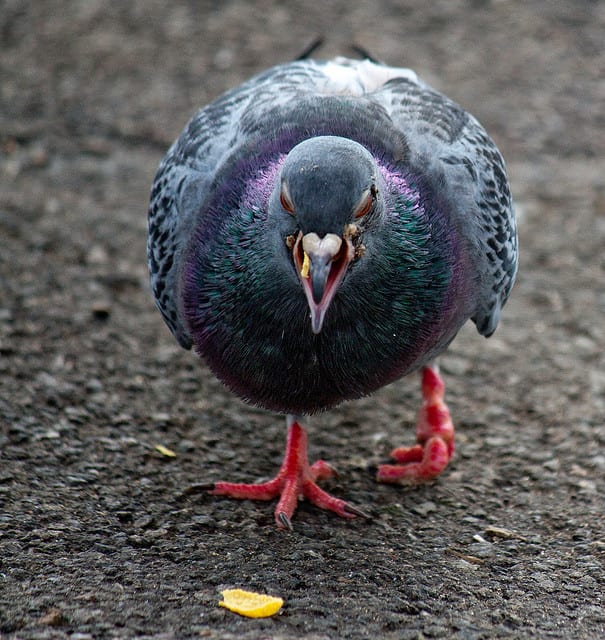
by Pigeon Patrol | Jul 20, 2023 | 4-S Gel Bird repellent, Animal Deterrent Products, Bird Deterrent Products, Bird Law, Bird Netting, Bird Spikes
We trap, poison or push these nuisance birds away from bridges and the ledges of downtown buildings, but perhaps pigeons are just misunderstood. At least, that’s what a group of university researchers think. They’re testing a new, er, old approach, really, to the problem of pigeon poop.
By this time next year, they’ll have at least one attractive stone “pigeon cote” to house the birds, attracting them to one place in order to concentrate the poop and use it as fertilizer. It works with nature, rather than controlling it, and aims to restore an ancient, mutually-beneficial relationship that modern society simply forgot.
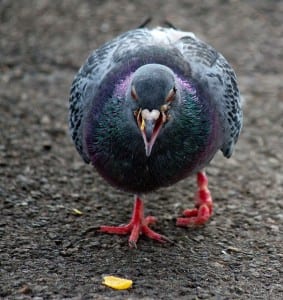
Yuck. Yes, I know. But intriguing as well. As city council heads into a week full of tough environmental decisions, I wonder if there’s a broader wisdom here that can help.
But first, these pigeons.
Pigeons really are the flying kings of poop. One study found they poop up to 40 times a day, although English researcher Kristine Kowalchuk (’12 PhD) would put that closer to 10, based on what she saw from a rescued baby pigeon.
She was walking out of the Art Gallery of Alberta one afternoon in the spring of 2016 when she found the tiny bird sitting quietly in the gutter. She picked it up, carried it home and raised it in her spare room until it was too big and messy to keep any longer.
That’s what got her thinking about pigeons, and the many references to squab (young pigeon) and the excellence of pigeon droppings as fertilizer she found littered throughout 17th century cookbooks and farming manuals during her English PhD.
It turns out farmers across Europe and North Africa would create large houses for free-ranging pigeons in fields or above their homes so that the birds would roost in one spot. That way both the young birds and poop could be harvested.
Now Kowalchuk, along with UAlberta professors Debra Davidson, an environmental sociologist, Howard Nye (Philosophy) and Aidan Rowe (Art & Design) using a $7,500 grant to build their own pigeon cote. It’s being built on a farm near Camrose because none of the five organizations with pigeon problems they contacted here in the city would entertain the idea.
They’re hoping a year observing the cote in action will change attitudes.
“We have so many misconceptions and cultural bias,” says Kowalchuk, citing studies measuring the risk of getting sick from being around the poop as tiny, akin to getting sick from a pet dog or breaking a leg from slipping on a dandelion. The person shovelling it out periodically would simply wear a mask.
Plus, the cote itself doesn’t increase populations; only feeding them does that, she says. “Our parks and flower beds could all benefit. Another way of looking at pigeons is entirely possible.”
I love the simplicity of Kowalchuk’s approach. I love the way it turns our pigeon problem on its head, resets a relationship.
That’s why I’ll be pondering pigeons as council wrestles with the environment file next week: first with its greenhouse gas reduction targets on Tuesday, then with waste management Thursday and a proposed ban on single-use plastics.
Because pigeon control isn’t the only area where humans expect we can control and build our way out of a mess with technology. We pave large parking lots and wonder why we have flooding. We cut trees and seem puzzled at the heat and dust of the city. We set out one big bag of all our trash and wonder why garbage fees keep rising.
I don’t think a single-use plastic ban will help much. It’s too narrow and complicated to administer. I’d rather see small fees for bags at the grocery store combined with measures that actually change a culture – like neighbourhood-level composting with free soil in exchange for yard waste drop-offs.
As for curbing carbon emissions, city officials have a long list of actions needed, from incentivizing electric cars to expanding district energy. But I don’t think technology is enough to solve this issue, not without a cultural change. Perhaps the lessons of pigeon poop will help there, too.
Source
Pigeon Patrol Products & Services is the leading manufacturer and distributor or bird deterrent (control) products in Canada. Pigeon Patrol products have solved pest bird problems in industrial, commercial, and residential settings since 2000, by using safe and humane bird
deterrents with only bird and animal friendly solutions. At Pigeon Patrol, we manufacture and offer a variety of bird deterrents, ranging from Ultra-flex Bird Spikes with UV protection, Bird Netting, 4-S Bird Gel and the best Ultrasonic and audible sound devices on the market today.
Voted Best Canadian wholesaler for Bird Deterrent products ten years in a row.
Contact us at 1 877-4-NO-BIRD,(604) 585-9279 or visit our website at www.pigeonpatrol.ca
Pigeon/Pigeon Patrol / Pigeons Roosing / Vancouver Pigeon Control / Bird Spikes / Bird Control / Bird Deterrent / PIgeon Deterrent / Surrey Pigeon Control / Pest / Seagull deterrent / Vancouver Pigeon Blog / Birds Inside Home / Pigeons in the cities / Ice Pigeons / What to do about pigeons / sparrows, Damage by Sparrows, How to Keep Raccoons Away, Why Are Raccoons Considered Pests / De-fence / Pigeon Nesting / Bird Droppings / Pigeon Dropping / woodpecker control / Professional Bird Control Company / Keep The Birds Away / Birds/rats/seagull/pigeon/woodpecker/dove/sparrow/pidgeon control/pidgeon problem/pidgeon control/flying rats/pigeon problems/ bird netting/bird gel/bird spray/bird nails/bird guard
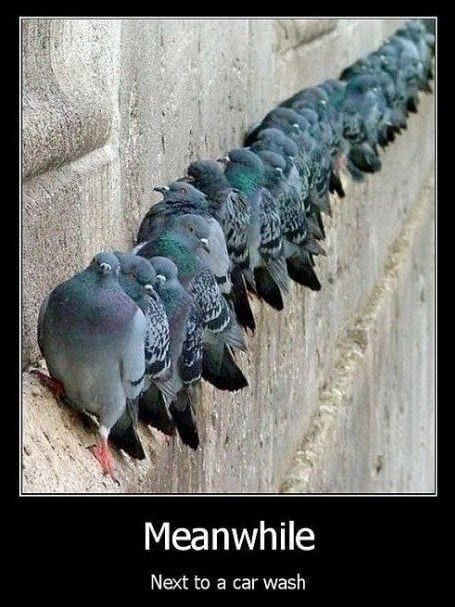
by Pigeon Patrol | Jul 20, 2023 | Bird Spike, Pigeon Predators, Pigeon Spikes, Pigeons, Pigeons in the News, Raccoons, Sparrows, UltraSonic Bird Control
Once used to deliver messages, these days pigeons are often reviled as urban pests.
The birds, common in major cities such as Paris and London, can often be seen struggling to walk due to missing toes and deformed feet.
Now a team of researchers in the French capital have come up with an interesting explanation for the phenomenon.
Previous research had suggested pigeons lose toes due to infections or chemical pollutants, but a new study by scientists from the National Museum of Natural History (MNHN) and the University of Lyon suggests that human hair may in fact be a culprit.
Study co-author Frédéric Jiguet, of MNHN, told CNN he came up with the idea for the study after noticing mutilated pigeons as he walked through the Jardin des Plantes, a botanical garden, in Paris.
“Pigeons have a very bad reputation in Paris, and actually everywhere in the world,” said Jiguet.
“People get confused, they think pigeons are dirty because they see them wandering about with stumps for legs, wandering through rubbish.”
However, the birds are actually “victims of our pollution, of our activities,” said Jiguet.
Researchers studied the extent of pigeon toe mutilations at 46 sites around the French capital.
Jiguet and the team found that toe mutilation “tended to increase with the density of hairdressers,” according to the study.
Jiguet said pigeons could lose digits which get stuck in human hair, a phenomenon known as “stringfeet.”
“When they walk, they can trip on strings or hair,” he said.
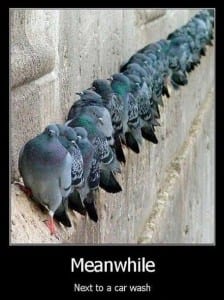
“The string might just fall, but sometimes it forms a knot around a toe, and in the end the toe dies and falls off.”
Pigeons also have fewer toes in areas with more air and noise pollution, providing a useful gauge for the quality of urban environments.
Jiguet said that the study showed “the more human activity in an area, the less toes pigeons have” and “the more green spaces, the more toes they have.”
“It would be interesting to look in all major cities in the world, to look at how many toes pigeons have in order to estimate the quality of the environment and of the pollution,” added Jiguet.
The study was published in the journal Biological Conservation.
Source
Pigeon Patrol Products & Services is the leading manufacturer and distributor or bird deterrent (control) products in Canada. Pigeon Patrol products have solved pest bird problems in industrial, commercial, and residential settings since 2000, by using safe and humane bird
deterrents with only bird and animal friendly solutions. At Pigeon Patrol, we manufacture and offer a variety of bird deterrents, ranging from Ultra-flex Bird Spikes with UV protection, Bird Netting, 4-S Bird Gel and the best Ultrasonic and audible sound devices on the market today.
Voted Best Canadian wholesaler for Bird Deterrent products ten years in a row.
Contact us at 1 877-4-NO-BIRD,(604) 585-9279 or visit our website at www.pigeonpatrol.ca
Pigeon/Pigeon Patrol / Pigeons Roosing / Vancouver Pigeon Control / Bird Spikes / Bird Control / Bird Deterrent / PIgeon Deterrent / Surrey Pigeon Control / Pest / Seagull deterrent / Vancouver Pigeon Blog / Birds Inside Home / Pigeons in the cities / Ice Pigeons / What to do about pigeons / sparrows, Damage by Sparrows, How to Keep Raccoons Away, Why Are Raccoons Considered Pests / De-fence / Pigeon Nesting / Bird Droppings / Pigeon Dropping / woodpecker control / Professional Bird Control Company / Keep The Birds Away / Birds/rats/seagull/pigeon/woodpecker/dove/sparrow/pidgeon control/pidgeon problem/pidgeon control/flying rats/pigeon problems/ bird netting/bird gel/bird spray/bird nails/bird guard
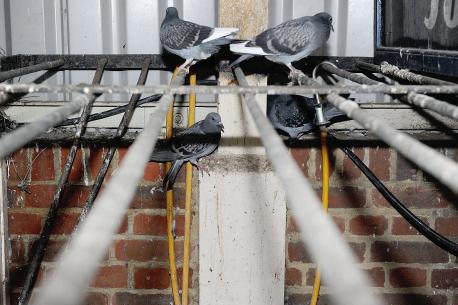
by Pigeon Patrol | Jul 20, 2023 | 4-S Gel Bird repellent, Animal Deterrent Products, Bird Deterrent Products, Bird Law, Bird Netting, Bird Spikes
Wageningen University released the results of research on a poultry farm that suffered visits from wild waterfowl, which are a source of the avian influenza virus (AIV).
The study revealed that when the laser was in use, a 99.7% wild bird reduction rate was recorded.
Wageningen Bioveterinary Research (WBVR), part of the Wageningen University, previously discovered a mallard, which is a species identified as a high-risk bird for carrying the avian flu virus, was frequenting a free-range area of a poultry farm from sunset to sunrise. This was notable from November to February, the typical bird migration period and when the avian influenza virus is more prevalent. Therefore, chickens in the free-range area had increased exposure to the virus, due to the regular occurrence of wild waterfowl during this time.
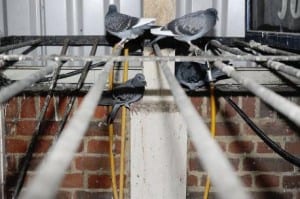
The project leader of the study, and epidemiologist at WBVR, Armin Elbers, explained: “Several mallards came to visit the range between sunset and sunrise daily. They look for food and swim in puddles of water that are formed during the winter period by abundant rainfall in the range. While swimming in the puddles, the ducks may defecate. During the day, the chickens drink the same water, as we saw in the video camera images. In the cold winter period, the bird flu virus can survive in such water for a long time.”
Wageningen University & Research did a study with the laser bird deterrent manufactured by Bird Control Group. This study explored whether the laser system could be a successful biosecurity measure to prevent avian influenza viruses from spreading from wild birds to domestic animals. The laser bird deterrent system has been used worldwide in a variety of applications to reduce bird presence. The system spooks birds away by projecting a green laser beam across areas where birds aggregate. The birds see the green laser beam as a solid object and instinctively perceive it as a physical threat, causing them to flee the area immediately.
The WBVR study took place in the winter of 2019-2020. The laser bird deterrent system was deployed on a six-meter-high pole in the farm’s free-range area of 1.5 hectares. In that area, eight wide-angle video cameras were installed to record visits of wild birds. The laser bird deterrent was active in the free-range area between 5 pm, and 10 am when the laying hens were in the barn. Between 10 am and 5 pm, the laying hens were in the free-range area, and the laser was used to protect the grass pastures surrounding the farm. The study was carried out over two months: one month without the laser, followed by one month with the laser.
Elbers earlier discussed the study during the International Egg Commission webinar, “AI Prevention and Innovative Biosecurity Measures — How the Dutch Egg Industry is Tackling AI,” held in October 2020. He said at the time the results would be released soon.
Study results
The results of the study indicated that virtually no wild ducks visited the free-range area (99.7% prevention rate) when the laser was in use. There was also a reduction of visits from other wild birds in the free-range area during sunrise, and 10 a.m. (about 96% prevention). The research interpreted, “The overall (all bird species) efficacy of the laser for reducing the rate of wild birds visiting the free-range study area was 98.2 %.”
When the laser was not in use in the free-range area, a significant number of geese would visit the surrounding grass pastures during the day.
Elbers concluded: “In this study, we confirm the high efficacy of using lasers to reduce the daily number of wild bird visits to the free-range area of a layer farm situated in an AIV-hotspot area. Given this high efficacy, the application of these lasers becomes a viable alternative for the prevention of introduction of avian influenza infections in poultry.”
Industry knowledge and future perspective
“For free-range poultry farms located in high-risk avian flu virus areas, which had repeated introductions of avian flu virus in the past, we believe that a laser could be helpful as a preventive measure to keep wild birds away from the farm during the high-risk period (October to March). Poultry farms with strictly indoor accommodations have also been infected with avian influenza virus in the past due to their location near wetlands. Using a laser during the high-risk period could offer a solution to this problem too by keeping wild waterfowl away from the vicinity of the barn,” Elbers stated.
The laser bird repellent has already been deployed at a poultry farm, Orchard Eggs, in the U.K.
Daniel Hoberichts, the owner of Orchard Eggs, understood the biosecurity measures that had to be taken to protect his poultry. He uses the laser bird repellent to prevent the chickens and staff from being exposed to the avian influenza virus.
Hoberichts explained: “Our birds are housed across 50 acres of orchard and we want to do everything to keep them safe from infection. Once we heard about the AVIX Autonomic it seemed like an ideal solution to complement all of our other biosecurity measures.” The laser bird repellent helped reduce bird presence by more than 90%.
Source
Pigeon Patrol Products & Services is the leading manufacturer and distributor or bird deterrent (control) products in Canada. Pigeon Patrol products have solved pest bird problems in industrial, commercial, and residential settings since 2000, by using safe and humane bird
deterrents with only bird and animal friendly solutions. At Pigeon Patrol, we manufacture and offer a variety of bird deterrents, ranging from Ultra-flex Bird Spikes with UV protection, Bird Netting, 4-S Bird Gel and the best Ultrasonic and audible sound devices on the market today.
Voted Best Canadian wholesaler for Bird Deterrent products ten years in a row.
Contact us at 1 877-4-NO-BIRD,(604) 585-9279 or visit our website at www.pigeonpatrol.ca
Pigeon/Pigeon Patrol / Pigeons Roosing / Vancouver Pigeon Control / Bird Spikes / Bird Control / Bird Deterrent / PIgeon Deterrent / Surrey Pigeon Control / Pest / Seagull deterrent / Vancouver Pigeon Blog / Birds Inside Home / Pigeons in the cities / Ice Pigeons / What to do about pigeons / sparrows, Damage by Sparrows, How to Keep Raccoons Away, Why Are Raccoons Considered Pests / De-fence / Pigeon Nesting / Bird Droppings / Pigeon Dropping / woodpecker control / Professional Bird Control Company / Keep The Birds Away / Birds/rats/seagull/pigeon/woodpecker/dove/sparrow/pidgeon control/pidgeon problem/pidgeon control/flying rats/pigeon problems/ bird netting/bird gel/bird spray/bird nails/bird guard
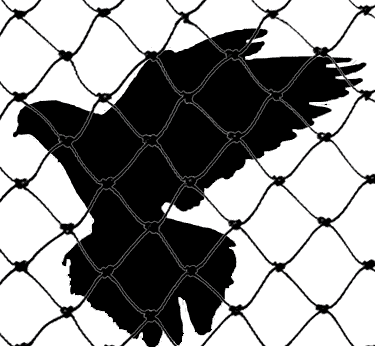
by Pigeon Patrol | Jul 20, 2023 | Columbidae, Doves, history of pigeons, MBCA, pet bird, Pigeon Control, Pigeon Droppings, Pigeon Patrol's Services
New research publishing June 18 in the open-access journal, PLOS Biology, led by Dr Lucy Taylor from the University of Oxford’s Department of Zoology now reveals that homing pigeons fit in one extra wingbeat per second when flying in pairs compared to flying solo.
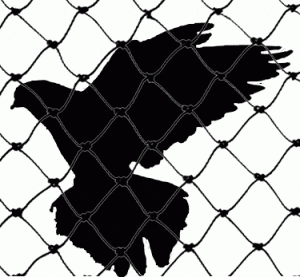
Birds that fly in ‘V’-formations, such as geese, are able to conserve energy by flying in aerodynamically optimal positions. By contrast, in species that don’t fly in formation, such as homing pigeons, the costs and benefits of flocking have been less well understood.
The research indicates that flying with another bird requires more energy compared to flying solo. ‘The results of this study were completely unexpected. Energy is the currency of life so it’s astonishing that the birds are prepared to pay a substantial energetic cost to fly together,” said lead-author, Dr Lucy Taylor.
The team used high frequency GPS and accelerometer bio-loggers to measure how pigeons changed their wingbeat patterns when flying in pairs compared to flying solo. The accelerometers act much like fitness trackers but, instead of measuring steps, the researchers measure wingbeats. ‘The increase in wingbeat frequency is equivalent to Usain Bolt running the 100m sprint at his usual speed, whilst fitting in nearly one extra step per second. The pigeons are flapping faster when flying in pairs but hardly going any faster,” said Dr Taylor.
The increase in wingbeat frequency is likely to be related to the demands of coordinating flight. Dr Taylor said: ‘Imagine trying to coordinate with and avoid hitting another small object travelling at around 44 miles per hour. This is nearly two times faster than an Olympic sprinter, and the birds can move up and down as well as left and right. For a pigeon, flapping your wings faster will both give you faster reactions and greater control over your movements, and will help keep your head stable making it easier to track where the other bird is.’
Despite the costs of fitting in one additional wingbeat per second, the birds consistently chose to fly together, suggesting that they were able to gain other benefits from flocking. Birds flying in a pair were simultaneously able to improve their homing accuracy, meaning that they could conserve energy by flying shorter routes home. Combined with increased predator protection from safety in numbers, this research suggests that the overall benefits of flocking outweigh the immediate energetic costs of changing wingbeat patterns.
Source
Pigeon Patrol Products & Services is the leading manufacturer and distributor or bird deterrent (control) products in Canada. Pigeon Patrol products have solved pest bird problems in industrial, commercial, and residential settings since 2000, by using safe and humane bird
deterrents with only bird and animal friendly solutions. At Pigeon Patrol, we manufacture and offer a variety of bird deterrents, ranging from Ultra-flex Bird Spikes with UV protection, Bird Netting, 4-S Bird Gel and the best Ultrasonic and audible sound devices on the market today.
Voted Best Canadian wholesaler for Bird Deterrent products ten years in a row.
Contact us at 1 877-4-NO-BIRD,(604) 585-9279 or visit our website at www.pigeonpatrol.ca
Pigeon/Pigeon Patrol / Pigeons Roosing / Vancouver Pigeon Control / Bird Spikes / Bird Control / Bird Deterrent / PIgeon Deterrent / Surrey Pigeon Control / Pest / Seagull deterrent / Vancouver Pigeon Blog / Birds Inside Home / Pigeons in the cities / Ice Pigeons / What to do about pigeons / sparrows, Damage by Sparrows, How to Keep Raccoons Away, Why Are Raccoons Considered Pests / De-fence / Pigeon Nesting / Bird Droppings / Pigeon Dropping / woodpecker control / Professional Bird Control Company / Keep The Birds Away / Birds/rats/seagull/pigeon/woodpecker/dove/sparrow/pidgeon control/pidgeon problem/pidgeon control/flying rats/pigeon problems/ bird netting/bird gel/bird spray/bird nails/bird guard










